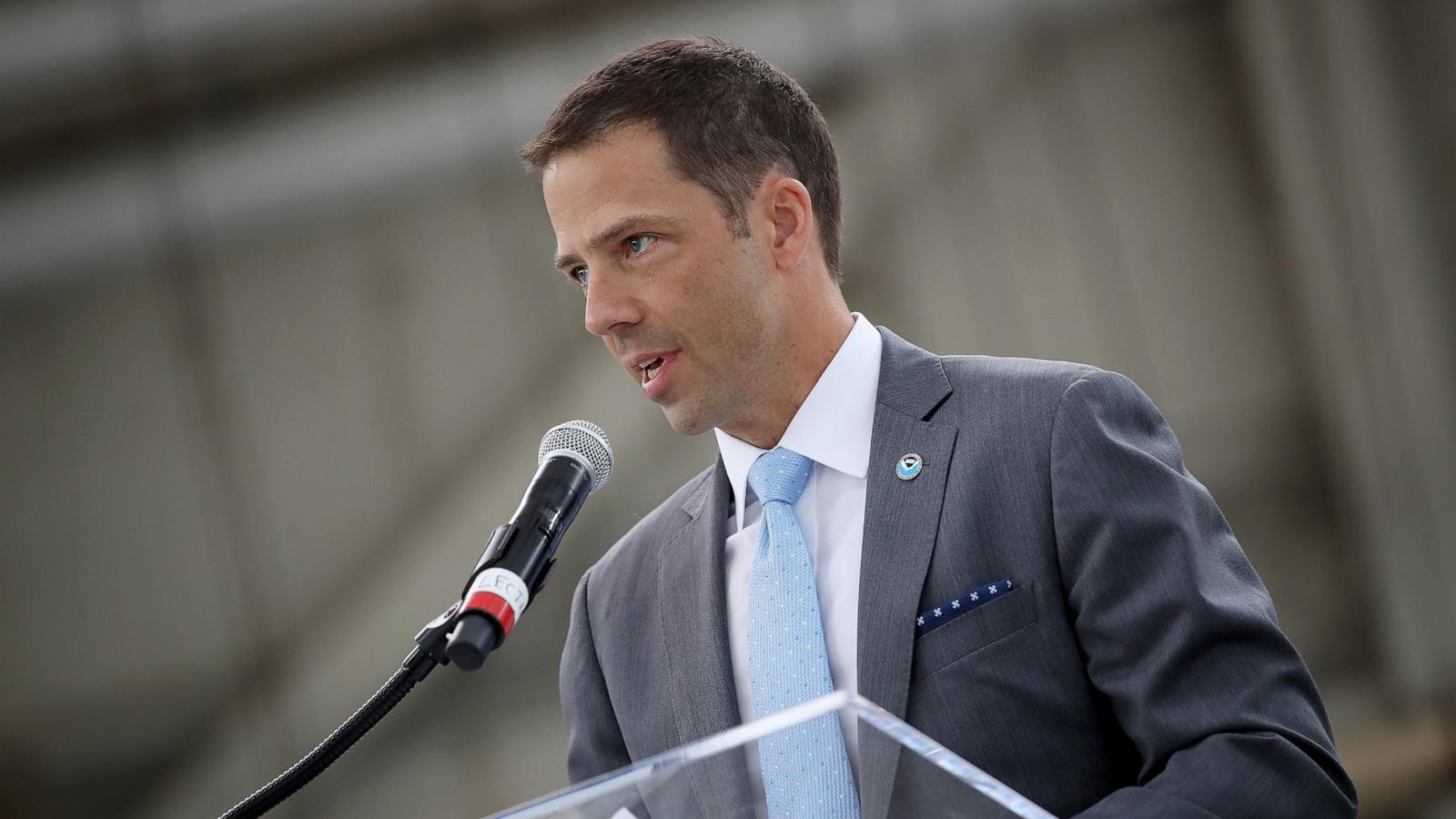President Donald Trump has nominated Neil Jacobs, an atmospheric scientist, to lead the National Oceanic and Atmospheric Administration (NOAA).
If confirmed, this will be Jacobs’ second stint leading the agency. Beginning in 2019, he served as its acting administrator until Trump left office at the end of his term in January 2021.
Jacobs is remembered for the so-called “Sharpiegate” incident, a September 2019 controversy during which Trump, in an Oval Office press briefing, showed a map of Hurricane Dorian’s forecast track that appeared to have been altered with a black pen to show the storm’s track extended to include southern Alabama. Though the official storm track from the National Weather Service (NWS) did not have it hitting the state, Trump had inaccurately declared a few days earlier that it would.
Shortly after Trump made the claim, NOAA issued a statement siding with Trump and admonishing the NWS for publicly saying that Alabama was not in danger from the storm.
Dorian ultimately did not make landfall in the U.S. and stayed east of Florida.
The NOAA Science Council subsequently investigated Jacobs, saying that he violated the organization’s scientific integrity policy by issuing a statement supporting Trump’s incorrect claim about Dorian’s storm track as an official NOAA release.

Jacobs is currently the chief science advisor for the community Unified Forecast System (UFS), part of the University Corporation for Atmospheric Research’s (UCAR) Cooperative Programs for the Advancement of Earth System Science at North Carolina State University.
The UFS is an effort by the broad scientific community to develop a common, open-source modeling infrastructure that encourages collaboration and eases the transition from research to operations to improve NOAA’s forecast models.
Jacobs has long supported an open innovation approach and well-coordinated research efforts that are mutually beneficial to the public, private, and academic sectors. In 2021, he published an article in the Bulletin of the American Meteorological Society, discussing his vision for the community UFS.

Before serving as NOAA’s acting director, Jacobs was the chief atmospheric scientist at Panasonic Avionics Corporation, where he directed the research and development of its aviation weather observing platforms and modeling programs.
In a November 2024 podcast interview, Jacobs shared his views on the future of government agencies, like NOAA, and also weighed in on Project 2025, a playbook of controversial conservative policy proposals co-authored by many Trump allies and members of his first administration, organized by conservative think tank The Heritage Foundation and which includes recommendations to repeal and eliminate preventive climate change initiatives.
“Any time there’s an administration or an election year, whether it’s an incumbent or a new administration, you’re always going to have these think tanks and groups pushing transition documents to the transition team saying, this is what you should do, you should read this,” Jacobs said. “The executive branch can’t just come in and completely change something that’s authorized in law.”

Jacobs also said that “NOAA has all of these congressional mandates that are codified. Congress would have to rewrite a mountain of legislation to undo all that.”
Last month, Jacobs was recognized as a 2025 Fellow of the American Meteorological Society (AMS) during the organization’s annual meeting. An AMS Fellow is a distinction reserved for those who have made “outstanding contributions to the atmospheric or related oceanic or hydrologic sciences or their applications during a substantial period of years.”
Jacobs holds a bachelor’s degree in mathematics and physics from the University of South Carolina, and master’s and doctoral degrees in atmospheric science from North Carolina State University.
ABC News: Top Stories
Read the full article .


